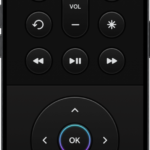Assessing Your Business Phone Needs
You’ve got a thriving business with offices across multiple locations. But your aging phone system is holding your team back. Missed calls and dropped connections make clients frustrated. And your team wastes too much time trying to coordinate instead of focusing on work. You know it’s time for an upgrade, but how do you choose the right office phone system to propel your business forward? With so many options and features to consider, it can be overwhelming. This article will walk you through key factors like cost, scalability, mobility, and ease of use. You’ll learn how leading phone systems compare on must-have capabilities. And you’ll get insider tips to select the perfect fit for your budget and business needs. Read on to get the clarity you need to make a smart investment in a phone system that will streamline teamwork and delight customers. The right choice is within reach.
Key Features of Modern Office Phone Systems
Choosing the right phone system for your business requires taking a close look at your specific communication needs. Follow these steps to determine the best solution:
– Take stock of your current setup. How many phone lines and extensions do you have? What features like voicemail, conferencing, or call routing are must-haves vs. nice-to-haves?
– Consider your budget and growth plans. A basic system may suffice now, but you’ll likely need to scale up capabilities as your business expands. Factor in room for future needs.
– Determine what’s most important – cost, features, reliability, etc. This will help narrow options. Mobility and seamless integration may be top priorities for a dispersed, mobile workforce.
– Think through your customer service needs. Do you need advanced call center features? How about message recording and automated attendants to handle high call volumes?
– Don’t forget about emergency preparedness. Look for systems with redundancy and backup power options to ensure availability.
– Check if you need specialized phone solutions for your industry, like HIPAA compliance in healthcare.
Taking this strategic approach will lead you to the ideal business phone system to improve communications and support your success. Reach out for help assessing options and requirements.
Choosing the Right Office Phone System Provider
Modern office phone systems offer a variety of features to support your business needs:
– Easy scalability – Many systems use VoIP (Voice over Internet Protocol), allowing you to simply add more phones as your business grows. This eliminates the need for expensive new hardware.
– Advanced call routing – Intelligent call routing ensures calls are sent to the right people or teams. Options like find me/follow me routing will ring multiple devices to track someone down.
– Unified communications – Leading systems integrate phone calls with other channels like email, chat, SMS texting, and video conferencing all in one interface.
– Mobility and remote work – Staff can use desk phones or softphones on laptops. Mobile apps allow call handling on smartphones and tablets. This enables remote work capabilities.
– Auto attendants – Custom auto attendants provide dial-by-name directories, automated menus, and self-service options for callers to route themselves. This improves customer experience.
– Analytics and reporting – Get insights into call volume, response times, missed calls, and usage trends. Identify areas for improvement.
– Integration with business software – Connect your phones with CRM platforms, help desk systems, ERP tools, and other business apps for more robust capabilities.
Thinking through your workflow, customer service needs, and future growth plans will help guide you in choosing the best office phone system to meet your business needs both today and in the years to come. The right system can take your communications to the next level.









